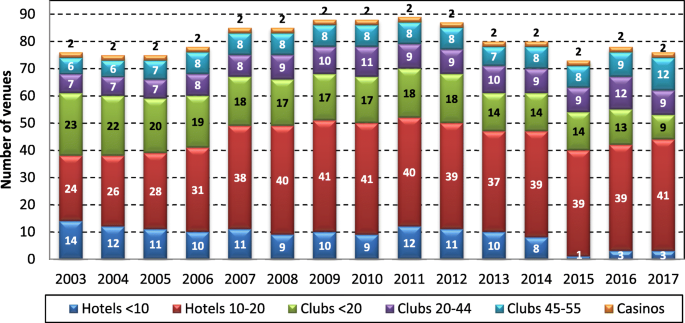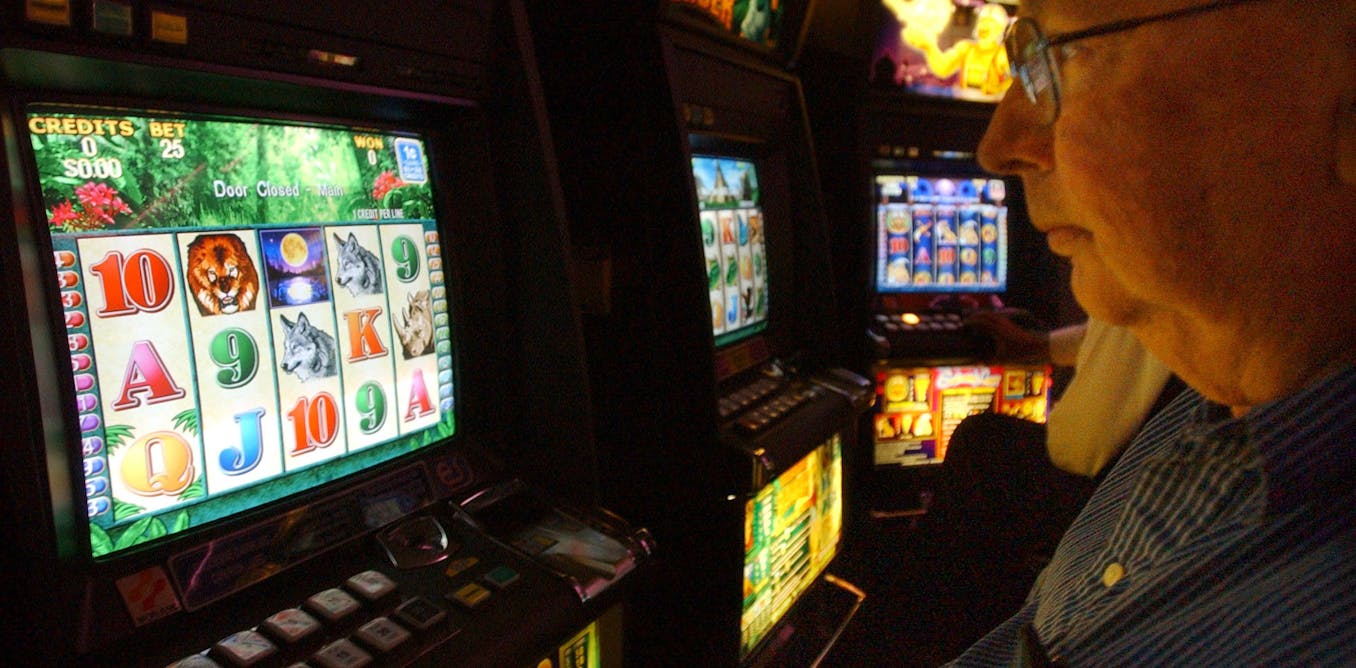Mandatory Pre-commitment On Poker Machines
Posted By admin On 29/07/22Officials there estimate that roughly 17,000 video poker machines are operating illegally. Those machines, if legalized, could generate as much as $550 million, according to Gov. Select from 19 different video poker variations with the button, including Jacks or Better, Bonus, Double Double, Triple Double, Full Pay Deuces, 16/10 (Not So Ugly) Deuces, Loose Deuces, three kinds of Joker Poker, and more. Keyboard You can use the mouse to click on cards to hold, or you may find it easier to use the keyboard: 1-5 = Hold/Cancel. Former Labor prime minister Julia Gillard squibbed on a deal with anti-pokies crusader Andrew Wilkie to introduce mandatory pre-commitment on gaming machines, and also refused calls for a $1 bet. Mandatory pre-commitment technology for poker machines will limit the economic and social impact of problem gambling on individuals, families and communities, according to the Australian Churches Gambling Taskforce. According to the poker machine, $3,000 was gambled, and $300 (all of Gladys’ money) was kept. That means that the machine paid out $2,700 which is the 90 per cent return.
VIDEO POKER ANYONE?
Applying for A Video Gaming License Under Illinois’ New Video Gaming Act
Author: James Rowe, Partner
The Law Firm of Rowe & Associates
If you are interested in applying for permission to operate a video gaming terminal (“VGT'), such as video poker machines, at your establishment or place of business in Illinois, this guide will prove helpful to answering some of your likely questions. However, each person’s situation is different, and the law complicated. Therefore, I encourage you to call The Law Firm of Rowe & Associates to further discuss the licensing requirements and application process with us.
Here are some sample Qs&As relating to the Gaming Act:
Q: Where will video gaming be allowed?
A: In licensed retail establishments where alcoholic liquor is drawn, poured, mixed, or otherwise served for consumption on the premises, licensed truck stops, and licensed fraternal and veterans establishments.
Video gaming is restricted from the following locations:
§ 1,000 feet of a facility operated by an organization licensee, inter-track wagering licensee, or inter-track wagering location licensee licensed under the Illinois Horse Racing Act of 1975 (230 ILCS 5/1 et seq. (West 2008)) (the Board may waive this restriction in certain circumstances);
§ 1,000 feet of the home dock of a riverboat licensed under the Riverboat Gambling Act (230 ILCS 10/1 et seq. (West 2008)) (the Board may waive this restriction in certain circumstances); or
§ 100 feet of either a school or a place of worship under the Religious Corporation Act (805 ILCS 110/0.01 et seq. (West 2008)).
Additionally, the Board must consider whether a video gaming terminal ownership would result in “undue economic concentration'.
Q: Is a license required to place a video gaming terminal in your establishment?
A: Yes. Those found without a proper license are subject to penalties.

Among the requirements for licensure:
(a) Burden is upon applicant. The burden is upon each applicant to demonstrate suitability for licensure. Each VGT manufacturer, distributor, supplier, operator, handler, and licensed establishment shall be licensed by the Board. The Board may issue or deny a license under this Act to any person under the same criteria set forth in Section 9 of the Riverboat Gambling Act (230 ILCS 10/9 (West 2008)).
(b) Background investigations. Each person seeking and possessing a license as VGT manufacturer, distributor, supplier, operator, handler, and licensed establishment shall submit to a background investigation conducted by the Board with the assistance of the State Police or other law enforcement. This investigation shall include each trust beneficiary, partnership partner, director, officer and member of the entity being investigated, as well as all stockholders of 5% or more in a parent or subsidiary corporation.
(c) Disclosure of financial interests. Each person seeking and possessing a license as a VGT manufacturer, distributor, supplier, operator, handler, and licensed establishment shall disclose the identity of every person, association, trust, corporation or limited liability company having a direct or indirect interest of more than 1% in the VGT operation for which the license is sought. If the disclosed entity is a trust, the application shall disclose the names and addresses of the beneficiaries; if a corporation, the names and addresses of all stockholders and directors; if a partnership, the names and addresses of all partners, both general and limited; if a limited liability company, the names and addresses of all members.
(d) License disqualifications. No person may receive a license under the Act if found by the Board to:
(1) Have been convicted of any violation of Article 28 of the Criminal Code of 1961; and/or
(2) Have a background (including a criminal record, reputation, habits, social or business associations, or prior activities) that poses a threat to the public interests of the State or to the security and integrity of video gaming; and/or
(3) Create or enhance the dangers of unsuitable, unfair, or illegal practices, methods, and activities in the conduct of video gaming; and/or
(4) Present questionable business practices and financial arrangements incidental to the conduct of video gaming activities.

(e) License application fees (fees charged by the State for applying):
Manufacturer
$5,000


Distributor
$5,000
Terminal operator
$5,000
Supplier
$2,500
Technician
$100
Terminal handler
$50
If you need assistance in navigating the waters of the application process for an Illinois gaming license, contact my Firm.
-------------------------------------------------------------------------
Rate this guide
About the author
'Bar Month' at OnMilwaukee.com is back for another round! The whole month of February, we're serving up intoxicatingly fun bars and club articles -- including guides, unique features, drink recipes and more. Grab a designated driver and dive in!
At bars all over the Milwaukee area, patrons sit down, order a drink and take their chances at a video gambling machine.
In just about every bar, you can find one of these machines. And for every machine, there is at least one patron willing to dump in money for hours on end, despite labels proclaiming 'for entertainment use only.'
Many times, though, the label is as decorative as beer advertisements on the wall. The fact is a large percentage of bars offer payouts for gamblers, in direct violation of Wisconsin state statutes.
Under a 1999 agreement that reduced penalties for operating illegal machines, enforcement is now handled solely by the state Department of Revenue, which makes sure bar, restaurant and hotel owners are paying appropriate taxes on revenue generated by machines.
Before then-Gov. Tommy Thompson revised the state law, violators faced felony charges, fines of up to $10,000, loss of liquor license and prison time. The current state law allows bars to have up to five video poker machines and paying out winnings is a civil offense, carrying a $500 fine and no loss of license.
Bars with more than five machines, however, could face criminal charges, according to Department of Revenue Communications Officer Jessica Iverson.
Regulating the machines is big business for the DOR, which has brought in nearly $23 million in taxes since the law went into effect in 2003. Proceeds generated through video gaming machines are taxable income, and the gross receipts are subject to the state's sales tax.
To keep things in check, the department relies heavily on tax audits and also enlists the help of Alcohol and Tobacco Enforcement agents.
'Our ATF agents come across the illegal machines through the course of normal inspection as well as in the course of investigating other tobacco or alcohol law violations,' Iverson says. 'We also, of course, conduct tax audits of businesses. If auditors identify gambling operations during the course of those audits, they will enlist the help of ATF agents to enforce that part of the statute, as well.'
In addition to the tax implications, the Wisconsin statute 945.01 (c) makes it illegal to operate any machine that affords a player to win something of value determined by a game of chance.
The threat of audits, fines and licensing issues aside, bar owners are willing to make the illegal payments because the machines bring in a big chunk of money.
'People sit down when they're bored,' said one bar owner who spoke with OnMilwaukee.com under the condition of anonymity. 'They're more inclined to spend more time and buy more drinks when they're at the machines and have a chance to win some money.
'A lot of people, if there's nobody at the bar, will sit at a machine and make a couple bucks to pass the time.'
At this particular establishment, players receive a ticket when done that they can redeem at the bar for their winnings. The bar owner knows he's taking a chance, but there's big money to be made, especially important in the current economy.
'It's a little bit scary, yeah,' he said. 'But it's a risk you take.'
Earlier in the decade, the Tavern League supported a measure introduced by Rep. Terry Musser (R-River Falls) that would have legalized the machines, generating as much as $380 million in revenue. Other supporters of the bill wanted to prevent Wisconsin Native American tribes, legally operating casinos under a compact with the state, from having a monopoly on gaming.
Some states are reconsidering their stances on video gambling in an effort to patch up growing budget deficits.
In Pennsylvania, Gov. Ed Rendell proposed legalizing some forms of video gambling as a means to fund free college tuitions at the 28 campuses in his state. Officials there estimate that roughly 17,000 video poker machines are operating illegally. Those machines, if legalized, could generate as much as $550 million, according to Gov. Rendell's plan.
Mandatory Pre-commitment On Poker Machines For Sale
'This is not an expansion of gaming,' Pennsylvania Revenue Secretary Stephen Stelter told The Philadelphia Inquirer earlier this month. 'It is the recognition that video poker is already a thriving industry.'